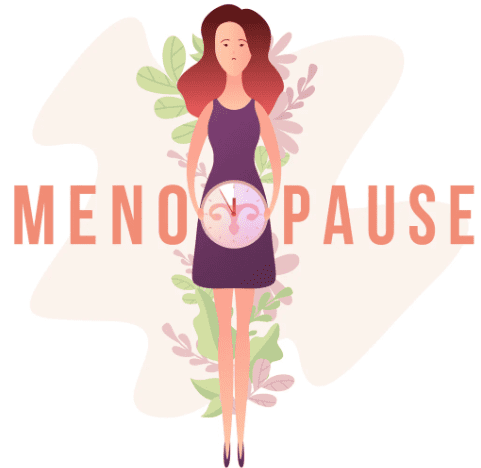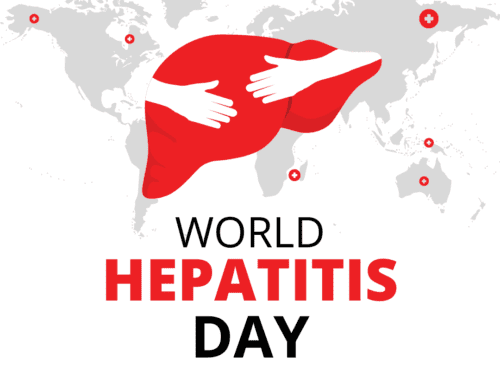BEYOND HOT FLASHES: MENOPAUSE SYMPTOMS THAT MIGHT SURPRISE YOU
We have all heard about hot flashes and night sweats, but there are more varied and intrusive symptoms that you may not realize are related to perimenopause. Did you know that the fluctuating hormone levels associated with perimenopause and menopause can lead to joint aches, urinary tract infections, changes in your sense of taste, brain fog, and heart palpitations?
Many perimenopausal symptoms can be confused with more serious medical conditions. If you are experiencing any of these symptoms, it is important to speak with your doctor to rule out other causes. Once you and your doctor agree that menopause is the culprit… you can work collaboratively to manage symptoms so you feel your best.
Do you have enough time to get the answers to all of your questions at your visit? Are you looking for a doctor who spends the time listening and really knows what is going on? Does your physician collaborate with you to create a plan that works for you? At Roots Health DPC we believe that spending time with patients is the key to providing excellent medical care. Our visits are unrushed and unlimited. Dr. Diaz is available directly via text and phone to answer the questions that inevitably come up between visits. Schedule a complimentary consultation today.
Menstrual Changes
Classically menopause has been defined as NOT having a period for a year. But during the perimenopausal time, periods can be lighter or heavier and occur more frequently or less frequently than usual. It is important to exclude other causes for irregular periods such as thyroid abnormalities that may be contributing to the picture.
Night Sweats and Hot Flashes
We all know that hot flashes and night sweats are typical perimenopausal symptoms. Estrogen reaches every organ of a woman’s body. Estrogen levels affect the brain and as they drop the thermoregulatory center that controls temperature (hypothalamus) is affected.
Body Image and Weight Gain
As estrogen levels drop, fat distribution begins to shift from the hips and thighs to the abdomen. Weight gain often occurs. During perimenopause, many women experience this increase in visceral fat along with a decrease in muscle mass which studies have shown raises the risk of developing heart disease and diabetes.
Sleep Disruption
Difficulty falling asleep or staying asleep are both common during the menopause transition. Fragmented or poor-quality sleep challenges many women during menopause. Chronic Sleep disruption can be alarming in it’s insidious nature and has many medical and psychological impacts.
Fatigue
Feeling fatigued or exhausted during menopause is common. This can be caused by fluctuating hormone levels, sleep disturbances, or a combination of both.
Sexual Concerns
Decreased estrogen levels leave vaginal tissue less elastic. The tissue becomes thinner and may tear, causing pain during intercourse. In addition, vaginal secretions lessen which means less lubrication. Women may experience decreased libido. This can be multifactorial and go beyond hormonal changes to include body image, stress and life changes, energy levels and a host of other factors.
Neurological Changes
Feeling unfocused and having difficulty concentrating, often called “brain fog,” is a common complaint during menopause. Sometimes brain fog is caused by the sleep disturbances or fatigue that can come with decreasing hormone levels. Estrogen supports memory function, so when it begins to decline, you may feel like you are less able to recall names and other facts.

Musculoskeletal Problems
Some experience body aches, muscle aches, and joint pain. Estrogen helps to reduce the body’s inflammation, and when it declines, joints have less of the natural lubrication that helps them move easily and without pain. Estrogen supports bone strength. Without enough estrogen your risk of osteoporosis increases. Preventing osteoporosis is key and good habits are important to cultivate.
Heart Palpitations
The feeling that your heart is racing, pounding, or fluttering is a sign of heart palpitations. Typical episodes that occur secondary to menopause are usually short lived and harmless and associated with hot flashes.
Changes In Skin, Nails, And Hair
Decreased elasticity in the skin is one of the effects of declining estrogen levels during menopause. Your skin may feel overly dry and more sensitive than usual. Less moisture affects fingernails and toenails. This can leave your nails feeling weak and brittle, and they may break or tear easily. Decreases in the amount of estrogen can also cause hair loss or thinning hair.
Taste Changes
Less moisture in the body affects saliva production. In addition to burning sensations or dry mouth, on occasion women experience changes in how food tastes during menopause. A metallic taste in the mouth can occur.
Urinary Dysfunction
Declining hormone levels can weaken the muscles in the pelvic floor. These muscles control bladder function. The result can be urinary incontinence and women can release urine without warning. Some women can develop urinary tract infections and benefit from treatment.
Education on this stage of life has been inadequate in general. We will discuss tools available to break down and manage these symptoms over the next few weeks. Women do not have to suffer these symptoms alone and they deserve the support of their physician to make informed decisions. Many symptoms can be improved with a combination of lifestyle changes, diet-modifications, and hormonal therapies when indicated. Don’t miss the next “Mondays with your MD”… let us send it you for FREE.





